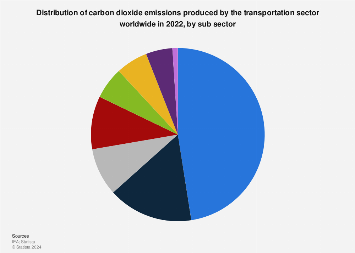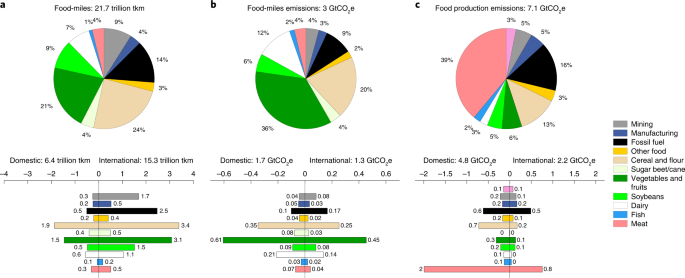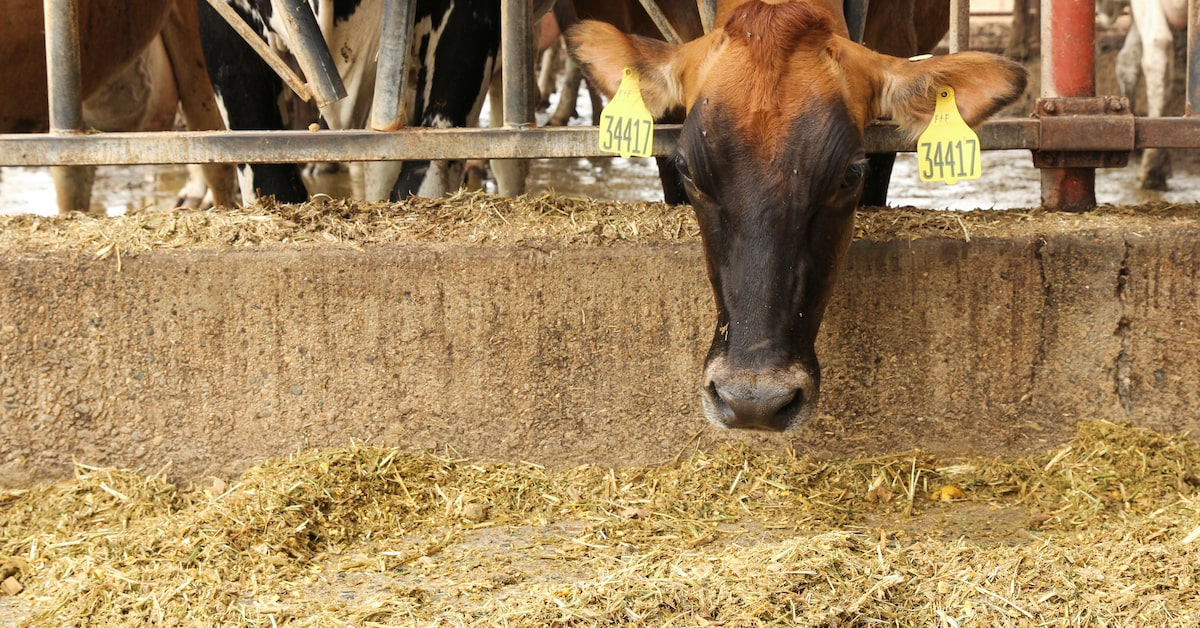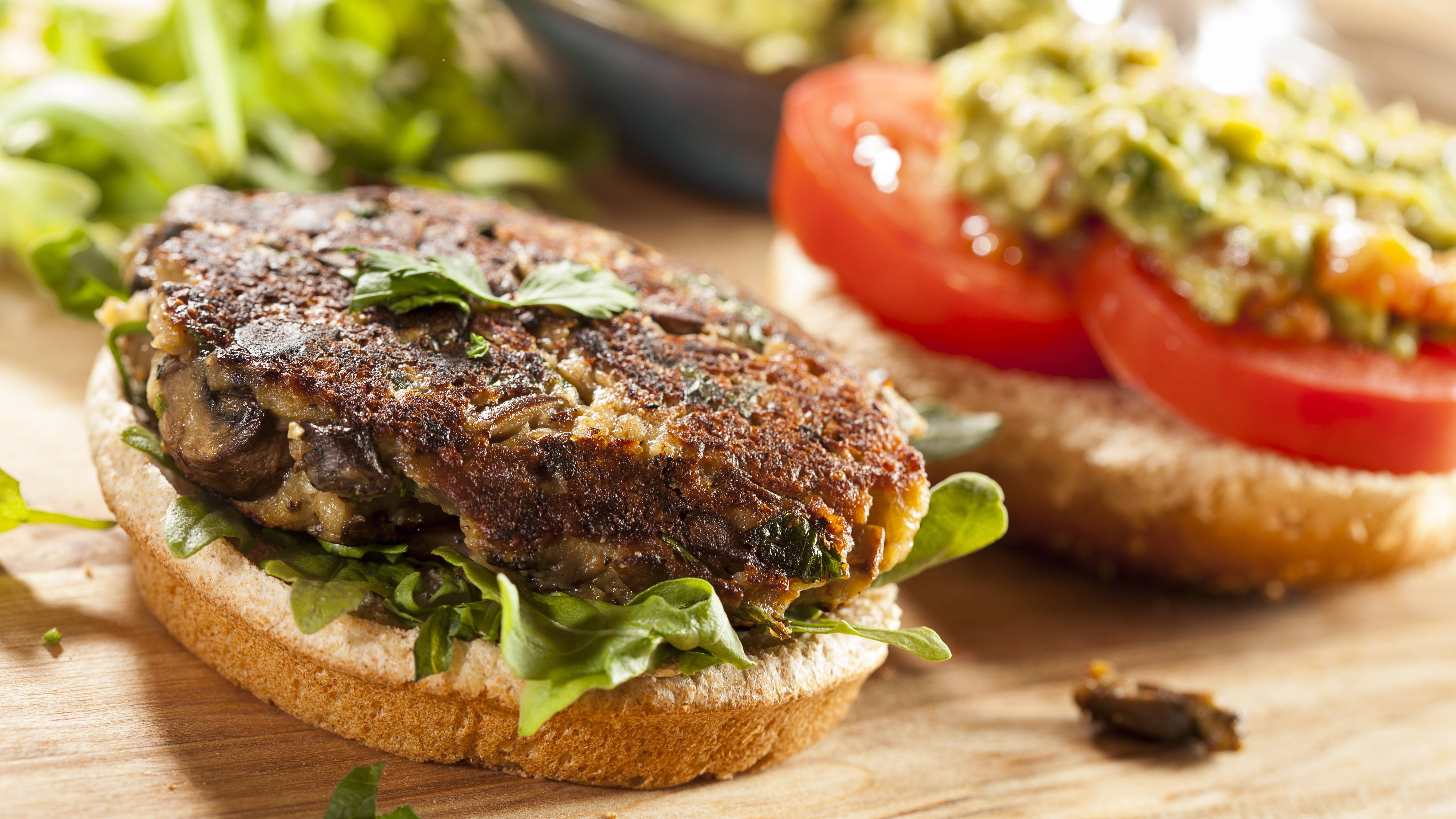A study from the UK dropped in a Nature journal last week.
It looks at an existing large UK health database, did extensive food surveys of the participants, and then puts them into buckets
1. High meat eater
2. Med meat eater
3. Low meat eater
4. Fish eater
5. Vegetarian
6. Vegan
Ad then computes how much environmental impact they each have in terms of global warming, land and water use, ocean dead zones, animal extinction, etc. Based upon their actual purchased and consumed food.
--The high meat eater category was over 100 g/day (all meats combined), which is close to the _average_ meat consumption in the US.
--The upshot is that vegan diet is only 25% of high meat eater global warming impact. The vegetarian diet is about 40% (bc of high dairy consumption).
--If one scores CH4 on a 20 year horizon (rather than the 100 year average), closer to its atmospheric lifetime, the vegan diet has about 16% of the climate impact, and the vegetarian is still about 35% of the high meat eater.
--Food production is responsible for ~34% of global warming forcing overall in 2015. Using 20 year lifetime CH4 metrics some estimate it is closer to 50%.
--The 2015 food production emission is 18 gigatonnes CO2e. All global transportation is about 7 Gtonnes CO2e. All cars globally are ~ 3 Gtonnes. IOW, global food production is 6X the CO2e emissions of all the worlds cars.

 www.statista.com
www.statista.com
We can decarbonize electricity production and electrify all road transport, and if humans decide to eat some more beef than currently, it would offset the improvement!
It looks at an existing large UK health database, did extensive food surveys of the participants, and then puts them into buckets
1. High meat eater
2. Med meat eater
3. Low meat eater
4. Fish eater
5. Vegetarian
6. Vegan
Ad then computes how much environmental impact they each have in terms of global warming, land and water use, ocean dead zones, animal extinction, etc. Based upon their actual purchased and consumed food.
--The high meat eater category was over 100 g/day (all meats combined), which is close to the _average_ meat consumption in the US.
--The upshot is that vegan diet is only 25% of high meat eater global warming impact. The vegetarian diet is about 40% (bc of high dairy consumption).
--If one scores CH4 on a 20 year horizon (rather than the 100 year average), closer to its atmospheric lifetime, the vegan diet has about 16% of the climate impact, and the vegetarian is still about 35% of the high meat eater.
--Food production is responsible for ~34% of global warming forcing overall in 2015. Using 20 year lifetime CH4 metrics some estimate it is closer to 50%.
--The 2015 food production emission is 18 gigatonnes CO2e. All global transportation is about 7 Gtonnes CO2e. All cars globally are ~ 3 Gtonnes. IOW, global food production is 6X the CO2e emissions of all the worlds cars.

Transport CO2 emissions shares by type| Statista
Road vehicles, such as trucks and cars, were responsible for three-quarters of the carbon dioxide emissions produced by transportation worldwide in 2023.
We can decarbonize electricity production and electrify all road transport, and if humans decide to eat some more beef than currently, it would offset the improvement!


![[Hearth.com] Yeah, a vegan diet is much better for the planet... [Hearth.com] Yeah, a vegan diet is much better for the planet...](/talk/proxy.php?image=https%3A%2F%2Fi.imgflip.com%2F3ily4n.jpg&hash=ea555e29385a52911bd8f12dd85544f8)





